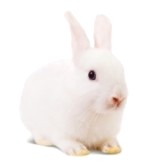Prompt: Candle

Leep blushed so hard that his ears burned. The lights had just been dimmed, and the servers were going around the restaurant lighting table candles. Amanda had disappeared to the Ladies’ Room shortly after they sat down, when the light was brighter. She would return to a romantic, candle-lit environment.
Why had she gone as soon as they sat down? Maybe she called a girlfriend, complaining that she had to spend time with someone like Leep. He wore a clean shirt, white with thin blue stripes, freshly ironed, but his pants were the dark ones, the ones he wore to Ham and Dolly’s wedding, and the night he shot Hootie in the ass. They hadn’t been to the dry cleaners since. Maybe they emitted horrible, bloody vibes, that every one in the room could feel. He blushed some more.
The restaurant was near full, no music or distraction except the mellow, muted buzz of conversation. A server came and stood in front of Leep. “May I bring you and the lady something to drink?” he asked.
“Water,” said Leep, and the server disappeared. Should he have ordered wine? The waiter was probably sneering at him behind his back. He didn’t know anything about wine, or anything about what Amanda liked to drink. Did they have to drink? This was a business meeting after all. But why here, in this place?
“I’ve always wanted to eat here,” said Amanda with a smile, as she sat down and pulled the chair closer. “Really nice, isn’t it?” They both looked around. It was modern, clean, with large shuttered windows and pools of lights in the corners, and sets of three candles on each table.
They both picked up the menu and began reading. Leep blushed at the silence. The food looked strange and expensive. He would stick to what he knew. Salad and a steak, if he could find them.
“Do you have Belgian beer?” he asked when the server came around a second time to enquire about alcohol. Amanda had ordered a glass of Pinot Noir. Leep knew a bit about beer now, and the server, startled, opened the wine list to the back page.
“I believe…” the server said uncertainly.
“Yes, here. I will have the Westmalle.” Leep pointed. He’d never tasted a Belgian Tripel.
“I’m flattered that you want me to be your editor,” Amanda said when the server backed away.
“I can pay you,” Leep said.
“Yes, but—“
“I have an investor,” said Leep. “I can afford to self-publish ‘The Blue Rabbit’. Did you get the manuscript with all the ideas?”
“But you see, I work for Panhandle Press, which does not do self-publishing.”
“I know,” said Leep. “This is separate.”
Leep ordered the house salad even though it had pecans in it, which Leep didn’t like, and which was the cheapest appetizer on the menu, and the Porterhouse steak, which was the most expensive entree on the menu. Amanda ordered eggplant gnocchi and the sea bass special.
“I love the idea of supplying a blue crayon with each book so the children can colour the blue rabbit themselves,” said Amanda.
“You do?” Leep blushed. His skin was tired of blushing, and the dressing on the salad was too sweet.
“Yes, perhaps we can do a board book, so the colour can be wiped off as many times as they want,” said Amanda.
“And the story?”
“Improved.”
Leep had to admit the steak was darn good. They were thinking about dessert, or another drink, or coffee, when someone screamed.
It was strange, Leep thought, how something as loud and shocking as a scream yields to a suspended silence, a void, a vacuum that sucks up breath and speech. There the silence hung, for long milliseconds, until the room came alive with movement and talk and shouting.
“Oh my god,” said Amanda.
People seemed to be rushing about, and a wall of staff hid the source of the scream, a table near the window. A few minutes later, an ambulance sounded.
“What happened?” Amanda asked the waiter when he returned to talk about cheesecake. He said someone was ill, nothing to do with the food. “Did you see anything, Leep?”
“No,” said Leep. Then to the server: “Bring the check.”
“Leep, it is my treat,” said Amanda. “You are my client now. It is tax-deductible.”
Through the window they could just see a gurney, plump with a strapped-in body, being loaded into the ambulance. It disappeared with lights flashing but no siren.
Leep had himself an editor, his own editor, who liked his ideas and, for the most part, his book. He tasted a Westmalle Tripel for the first time. Someone got sick or died and upset the universe of the restaurant and distracted attention away from Leep and his failings. His meal was tax-deductible. Amanda didn’t seem to hate him and probably did not complain about him to her girlfriend when she went to the Ladies’ Room.
This was the best date he had ever been on.










